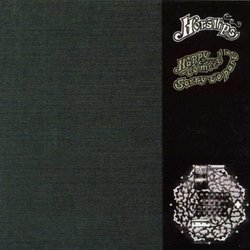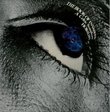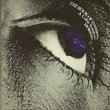Irish folk marries rock: their first offspring
John L Murphy | Los Angeles | 07/08/2005
(4 out of 5 stars)
"When I first heard this, in the wonderful l.p. version that was die cut like a concertina, it made me proud. In the era of Tull and Fairport and Steeleye Span, an Irish group finally opened up rock listeners like myself to traditional music, which for my young self had been poisoned by my parents' generation of showband crooners and unctuous Bing Crosby covers. With Horslips, I could drink from the well, so to speak, and my erstwhile (pre)punk cred might have been a bit tainted, but the energy and intelligence of this debut made its own claim for attention confidently yet sensitively.
Hearing this album decades after I first did, some of the arrangements have honestly not worn well, but the same can be said for all three English bands in the previous paragraph. What distinguishes Horslips from their peers may be that they the five Irishman could tap into a still living musical and linguistic tradition, and went to learn from musicians rather than, as Ashley Hutchings did, from the manuscripts--themselves collected by such as Lloyd and way back by Child, of course. Not to by any means denigrating the English example, but I'd hazard that the connection with the "living tradition" for Horslips, I sense, was somewhat closer than for the late 60s London bands that preceded them into folk & rock. Perhaps Sweeney's Men predated Horslips into merging some outside influences into an Irish trad foundation, but that late-60s trio sought inspiration more from Californian folk-rock and its L.A. singer-songwriters.
Also, Horslips thrived just as Planxty and then the Bothy Band were jump-starting the home-grown trad scene, playing the old tunes touched by veins of rock rather than as fossilized artifacts.
Back to "Happy," the most enduring sounds in retrospect seem to lie among, a bit surprisingly to me, some of the less amped-up songs. (I find the same now when returning to many Tull, Fairport, and Steeleye efforts contemporaneous with this 1972 l.p.). "Flower" and "Clergy" gain from their delicacy, while the phasings on "Musical Priest," and "Hall of Mirrors" make these sound today like imitation prog. The band's eagerness to plug in may be understandable, but their stance to hold back, as in their version with Johnny Fean's lamenting slide guitar, of "Shamrock Shore," makes what to my younger ears sounded cloying now more gentle, to this fine song's improvement.
"Ace & Deuce" has never left my memory since I first heard it, an excellent duel, as this piper tune's title predicts, that shows off all of the band at its finest. Johnny Fean's guitar work has often been praised, but don't forget the band. Eamonn Carr (later a writer for Hot Press magazine) controls the bodhran especially well, and the whistles, fiddles, and mandolins from Charles O'Connor & Jim Lockhart, and Barry Devlin's bass--perhaps a pioneer in his contribution to Irish folk-influenced arrangements--all propel the music sensibly.
While, as many first efforts, a harbinger of better work to come, this album, rounded up if I could to 4.33 stars for effort, prepares for the band's best two records, "Tain" and "Book of Invasions." It ranks, however, # 3. A recovery from hamfisted sham-rock (sorry), their disparate, back-to-roots Christmas collection, pre-"Tain" "Drive the Cold Winter Away," is often ignored but can stand its own against Horslips' "all-trad" purist peers.
Their two albums after "Happy," "Dancehall" and "Unfortunate Cup," take the band too far into muddled rawk, competing with, say the electrified Steeleye that was also emerging; these have not worn well. A irreversible decline followed "Book," as their rockier, Tull-like, anthemic sound eclipsed and eliminated the traditionally-hued, dappled shadings on their finest four albums.
P.S. Make sure you buy the band-approved remasters of Horslips CDs out on Edsel in 2000, not the 1990s Outlet issues. I have both for HTMSTP, and having played them side-by-side to compare, the sonic clarity is substantially enhanced, noticably in the bass-drums foundation for the skirling whistle-guitar-fiddle sound that characterizes this giddy, memorable LP.
"
This took Ireland by storm when it came out in '73
John L Murphy | Los Angeles | 08/10/2006
(4 out of 5 stars)
"Note: this is dated 2006 and not 2000, but should be the same Edsel-Demon reissue that the band approved and supervised. It's essential that you purchase only this version, not the 1990s Outlet one with inferior sound and cheap packaging.
When I first heard this, in the wonderful l.p. version that was die cut like a concertina, it made me proud. In the era of Tull and Fairport and Steeleye Span, an Irish group finally opened up rock listeners like myself to traditional music, which for my young self had been poisoned by my parents' generation of showband crooners and unctuous Bing Crosby covers. With Horslips, I could drink from the well, so to speak, and my erstwhile (pre)punk cred might have been a bit tainted, but the energy and intelligence of this debut made its own claim for attention confidently yet sensitively.
Hearing this album decades after I first did, some of the arrangements have honestly not worn well, but the same can be said for all three English bands in the previous paragraph. What distinguishes Horslips from their peers may be that they the five Irishman could tap into a still living musical and linguistic tradition, and went to learn from musicians rather than, as Ashley Hutchings did, from the manuscripts--themselves collected by such as Lloyd and way back by Child, of course. Not to by any means denigrating the English example, but I'd hazard that the connection with the "living tradition" for Horslips, I sense, was somewhat closer than for the late 60s London bands that preceded them into folk & rock. Perhaps Sweeney's Men predated Horslips into merging some outside influences into an Irish trad foundation, but that late-60s trio sought inspiration more from Californian folk-rock and its L.A. singer-songwriters.
Also, Horslips thrived just as Planxty and then the Bothy Band were jump-starting the home-grown trad scene, playing the old tunes touched by veins of rock rather than as fossilized artifacts.
Back to "Happy," the most enduring sounds in retrospect seem to lie among, a bit surprisingly to me, some of the less amped-up songs. (I find the same now when returning to many Tull, Fairport, and Steeleye efforts contemporaneous with this 1972 l.p.). "Flower" and "Clergy" gain from their delicacy, while the phasings on "Musical Priest," and "Hall of Mirrors" make these sound today like imitation prog. The band's eagerness to plug in may be understandable, but their stance to hold back, as in their version with Johnny Fean's lamenting slide guitar, of "Shamrock Shore," makes what to my younger ears sounded cloying now more gentle, to this fine song's improvement.
"Ace & Deuce" has never left my memory since I first heard it, an excellent duel, as this piper tune's title predicts, that shows off all of the band at its finest. Johnny Fean's guitar work has often been praised, but don't forget the band. Eamonn Carr (later a writer for Hot Press magazine) controls the bodhran especially well, and the whistles, fiddles, and mandolins from Charles O'Connor & Jim Lockhart, and Barry Devlin's bass--perhaps a pioneer in his contribution to Irish folk-influenced arrangements--all propel the music sensibly.
While, as many first efforts, a harbinger of better work to come, this album, rounded up if I could to 4.33 stars for effort, prepares for the band's best two records, "Tain" and "Book of Invasions." It ranks, however, # 3. A recovery from hamfisted sham-rock (sorry), their disparate, back-to-roots Christmas collection, pre-"Tain" "Drive the Cold Winter Away," is often ignored but can stand its own against Horslips' "all-trad" purist peers.
Their two albums after "Happy," "Dancehall" and "Unfortunate Cup," take the band too far into muddled rawk, competing with, say the electrified Steeleye that was also emerging; these have not worn well. A irreversible decline followed "Book," as their rockier, Tull-like, anthemic sound eclipsed and eliminated the traditionally-hued, dappled shadings on their finest four albums.
P.S. Make sure you buy the band-approved remasters of Horslips CDs out on Edsel in 2000, not the 1990s Outlet issues. I have both for HTMSTP, and having played them side-by-side to compare, the sonic clarity is substantially enhanced, noticably in the bass-drums foundation for the skirling whistle-guitar-fiddle sound that characterizes this giddy, memorable LP."


 Track Listings (13) - Disc #1
Track Listings (13) - Disc #1
